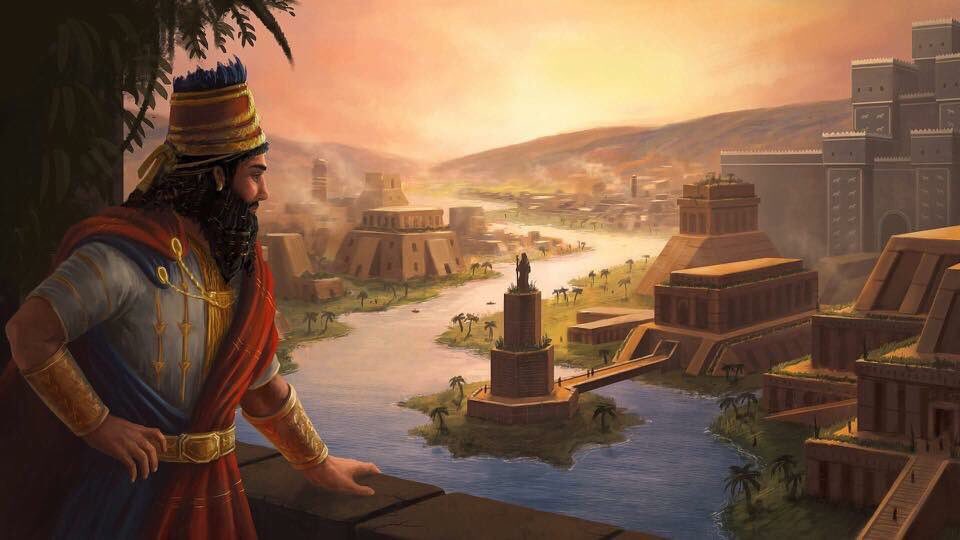
A MINI-THREAD...
...full of speculation.
Today I came across the Babylonian word ‘tullal’.
It refers to a soap plant (or something like it).
...full of speculation.
Today I came across the Babylonian word ‘tullal’.
It refers to a soap plant (or something like it).

It’s parsed in the Concise Dictionary of Akkadian as a 2nd person (D-stem) conjugation of the verb ‘elēlu’ (‘to be pure’), 

Anyway, it got me thinking about the unusual term ‘tolaleynu’ (תּוֹלָלֵינוּ) (a hapax) in Psa. 137,
which has long puzzled people.
It’s typically translated as ‘our tormentors’.
No-one seems very confident about it though.
What exactly does it mean, and why?
which has long puzzled people.
It’s typically translated as ‘our tormentors’.
No-one seems very confident about it though.
What exactly does it mean, and why?

My suggestion is as follows.
It’s a homonym of ‘tullal’ (‘purifier’), and is an unattested Babylonian term for people who made others sing--or, more specifically, for people who made *workforces* sing.
It’s a homonym of ‘tullal’ (‘purifier’), and is an unattested Babylonian term for people who made others sing--or, more specifically, for people who made *workforces* sing.
Here’s why I think so.
As we saw, the Babylonian word ‘tullal’ is a conjugation of the verb ‘elēlu’ (‘to be pure’).
A D-stem conjugation of the verb ‘alālu’, however, would have exactly the same form.
What might such a word mean?
As we saw, the Babylonian word ‘tullal’ is a conjugation of the verb ‘elēlu’ (‘to be pure’).
A D-stem conjugation of the verb ‘alālu’, however, would have exactly the same form.
What might such a word mean?
Well, in the Gt-stem, ‘alālu’ means ‘to sing joyfully’--or perhaps (given its nominal form) ‘to sing a work song’. 

A D-stem conjugation of it could be expected to increase its valency.
Consider a couple of examples by way of illustration.
In the G-stem, the verb ‘namāšu’ means ‘to start out on a journey’, while, in the D-stem, it means ‘to make someone else start out on a journey’.
Consider a couple of examples by way of illustration.
In the G-stem, the verb ‘namāšu’ means ‘to start out on a journey’, while, in the D-stem, it means ‘to make someone else start out on a journey’.
In the G-stem, the verb ‘tamû’ = ‘to swear an oath’, while, in the D-stem, it means ‘to make someone else swear an oath’.
More typically, that’s the kind of thing a shin-stem does, but the D-stem can do it too. (For more examples, see da’āmu, magāru, and nazāmu.)
More typically, that’s the kind of thing a shin-stem does, but the D-stem can do it too. (For more examples, see da’āmu, magāru, and nazāmu.)
So the Babylonian word ‘tullal’ can plausibly be taken (I claim) to refer to someone whose job it was to make workforces sing,
and Psalm 137 can be taken to have borrowed the word (into Hebrew) to describe the exiles’ conditions in Babylon with a native turn of phrase.
and Psalm 137 can be taken to have borrowed the word (into Hebrew) to describe the exiles’ conditions in Babylon with a native turn of phrase.
Psalm 137.3 then reads,
Our captors required songs of us,
and our songmasters made us sing joyfully, saying,
‘Sing us one of the songs of Zion!’.
Well, that’s my idea anyway.
Our captors required songs of us,
and our songmasters made us sing joyfully, saying,
‘Sing us one of the songs of Zion!’.
Well, that’s my idea anyway.

• • •
Missing some Tweet in this thread? You can try to
force a refresh









